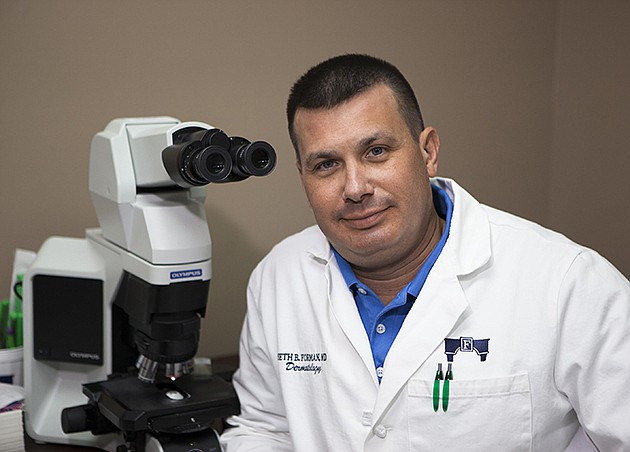- November 24, 2024
-
-
Loading

Loading

Dr. Seth Forman never imagined he would be published in the New England Medical Journal.
“If you would have told me that when I was applying to medical school,” he says, “it would be like telling me I would fly to the moon.”
But in August, the Tampa-based dermatologist co-authored an article in the journal on treatment options for a painful chronic skin disease called hidradenitis suppurativa. His clinical research company, Forward Clinical Trials, led the country in enrollment in the study, providing 16 people for pharmaceutical firm AbbVie to use in the test run.
That's just one example of how Forward Clinical Trials has begun to make a name for itself with pharmaceutical companies that need to test drugs prior to FDA approval. Forman says the clinical trial company has doubled its revenue each year for the past three years, and he expects to more than double sales next year. He declines to provide specific figures.
It's a big change from when the company started, when Forman and his team invested a lot of time calling pharmaceutical companies to introduce themselves. Today, four years later, the six-employee business is selective in the trials it participates in. It turns down offers frequently.
“There's so much garbage out there,” he says. “If you are reliable and your data is verifiable, companies come back wanting you to participate again.”
Though clinical trials can be very competitive, and the ultimate goal is to enroll as many people as possible, ethics plays a big role in the ones Forman works with. If he thinks a product may be dangerous, or won't work, he'll balk.
“These are people. You can call them subjects, but to me, they are patients,” he says.
In addition to Forward Clinical Trials, Forman also runs a medical practice with 25 employees and a consulting business. The dermatology practice is focused on inflammatory diseases, such as psoriasis and eczema. Some dermatologists pass up that work because it's not as lucrative as other niches, like cosmetic fillers or skin cancer.
“Once Forward Clinical Trials took off, I began getting requests for input on developing protocols, reviewing data and strategic positioning for compounds in development,” Forman says. That led to the consulting firm.
Forman's biggest challenge with all the businesses is space. With more space, he could diversify his clinical research and his medical practice and hire more employees.
He's hoping to relocate in the next couple years. “I need a building three times the size,” he says
Another challenge, one common in medicine: running the business side of the practice.
One of the best business decisions he's ever made was to hire an accountant, he says.
“I never knew how much people owed me,” says Forman. He hired one of his employee's moms to keep track of his books.
Forman also emphasizes trust in hiring. That's why two mother-daughter teams work for him, including someone who used to babysit for his family. People hired from job boards such as Monster have not panned out as well. “Everyone who I've hired who I knew beforehand or was referred to me has worked out,” Forman says.
Though Forman credits his success to his willingness to take risks, he also says he is relentless and he focuses on his strengths.
“I have an unbelievable drive to do better than anyone else, and I know what I'm good at,” he says.